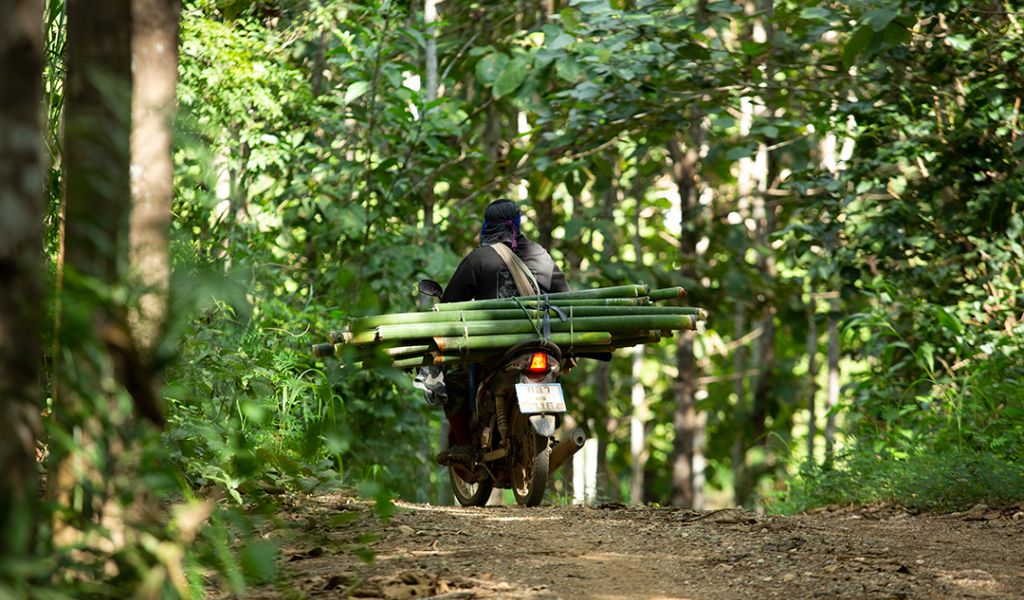Delivering multiple benefits for people and the Earth through bamboo
Date:
Time:
Timezone:

For the millions of people in low-income countries in Africa, Latin America and the Caribbean, bamboo cultivation can increase earnings, protect the environment and contribute to achieving the Sustainable Development Goals (SDGs). Bamboo species cover more than 35 million hectares across the world’s tropical and subtropical regions. They are part of many natural and agricultural ecosystems, providing multiple local and global ecosystem services.
Bamboo species are useful in landscape restoration to:
- Prevent soil and sediment loss
- Contribute to water recharging
- Provide food and raw materials
- Harbour biodiversity
- Sequester carbon
Bamboo is particularly important to rural farming systems and economies, sustaining livelihoods. Bamboo shoots contribute to the food security and nutrition of many communities. Bamboo is also a perennial feed and fodder for livestock and habitat for a broad range of animals and invertebrates. Bamboo is a crop of immense potential, yet there is limited recognition of its value and a significant knowledge gap. There is a need to share more widely information on research methodologies, best practices and tools that address the complexity of sustainable development for people and nature.
Using case studies from Africa, Asia and Latin America, this session at the World Forestry Congress, organized by International Network for Bamboo and Rattan (INBAR), will demonstrate how bamboo as a resource can help combat forest degradation, restore landscapes, improve livelihoods, create jobs, conserve biodiversity and provide clean energy. It will also showcase bamboo as the alternative solution for pasture silviculture, climate-resilient housing, ecosystem services and food security.
Welcome remarks
- Lu Wenming, Deputy Director-General at International Network for Bamboo and Rattan (INBAR)
Moderator
- Borja De La Peña Escardó, Global Police Officer at INBAR
Panel
- Representative of the Government of the Netherlands
- Representative of International Fund for Agricultural Development (IFAD)
- Official from Ministry of Forests and Wildlife (MINFOF) in Cameroon
- Official from the Government of Ethiopia
- Representative of the private sector
Closing remarks
- David Ganz, Executive Director at RECOFTC

